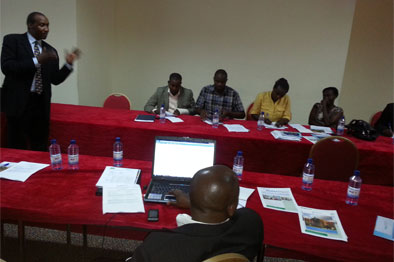Integrating climate change and water resources management in the in development plans and policies is characterized by technical flaws or completely missing. Why?
- There is still a big gulf between science and policies. There is still debate whether science informs policies or policies inform sciences;
- There are gaps in skills, knowledge and capacities at regional, national and local levels in water resources management, climate change adaptations and drought management;
- Information and knowledge about water, IWRM, climate change, food security, drought management is still scantily available ;
- Little that knowledge is “hard-science” and digesting by non-specialists it is not every body’s capacity;
Home-grown solutions
Each community has its unique positive water wisdoms and unconventional techniques on water resource management, climate change mitigations and drought management.
Use of a wide knowledge base: conventional and home-grown knowledge, skills and techniques at regional, country and local levels are leveraged for sustainable solutions on water resources management and climate change.
Knowledge-sharing
GWP Eastern Africa shares its knowledge resources and products through user-friendly publishable materials (newsletters, brochures, synthesized corporate reports, and press releases), inter-personal communications (awareness-raising meetings, high-level policy dialogues, seminars, training workshops) and media engagements (press conferences, press releases, tailored trainings) and online web presence, see next section.
